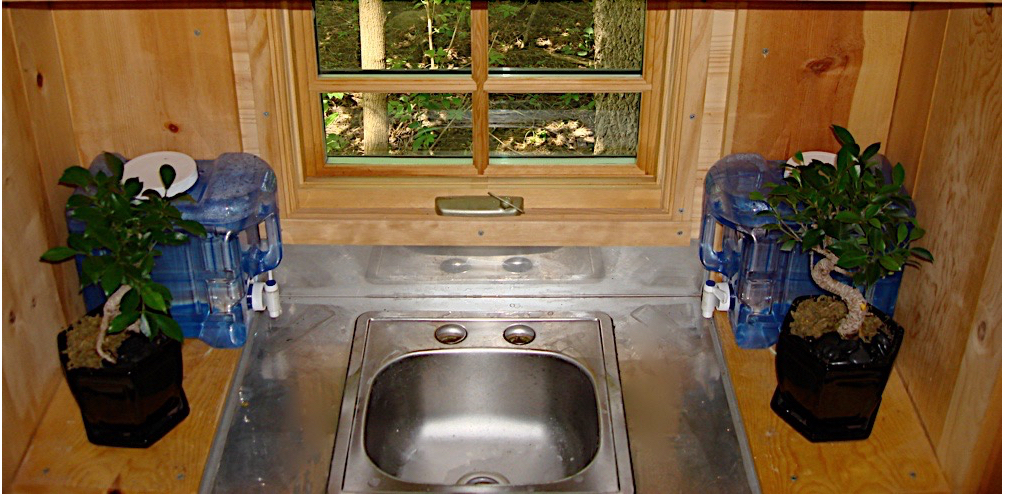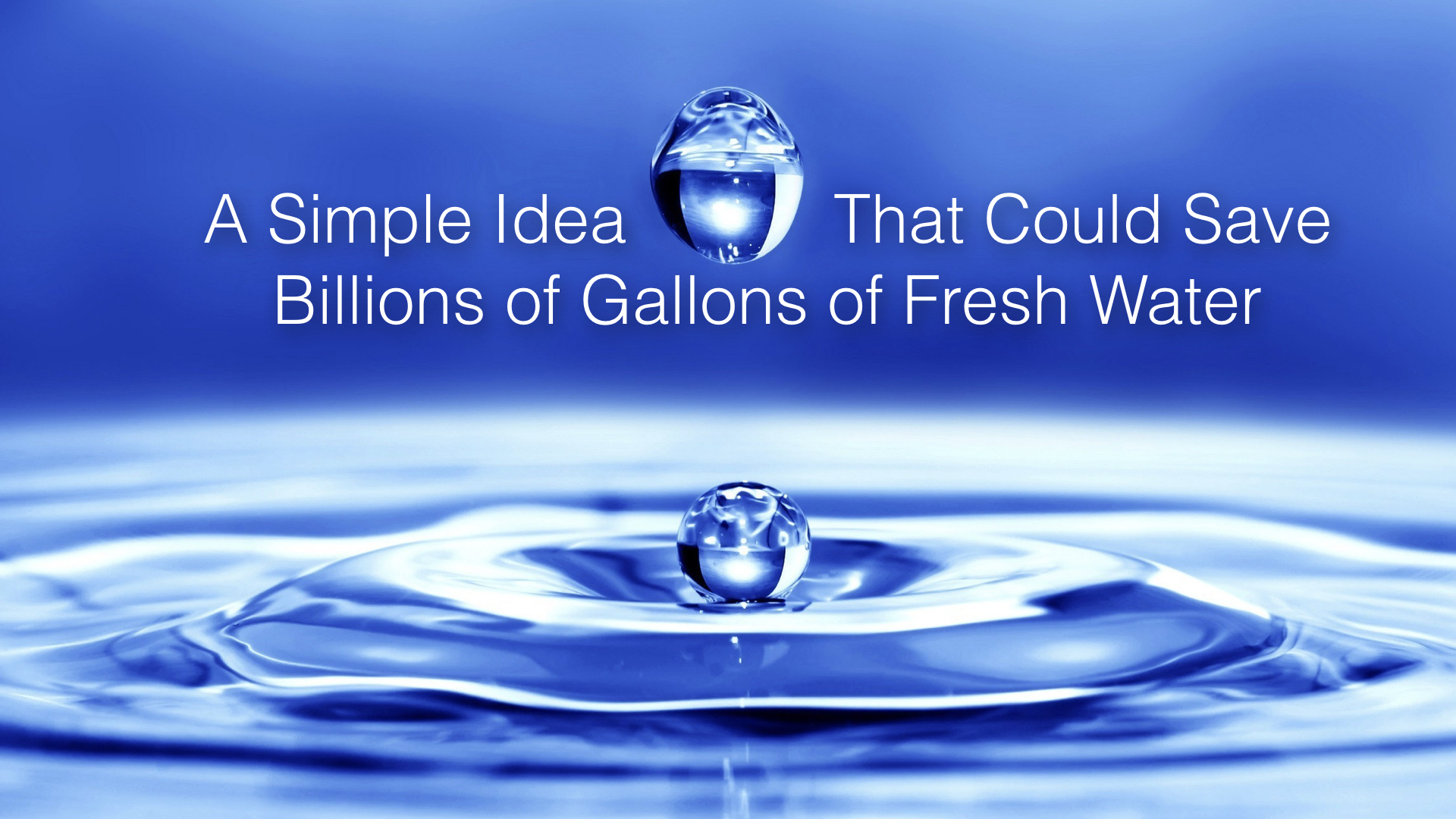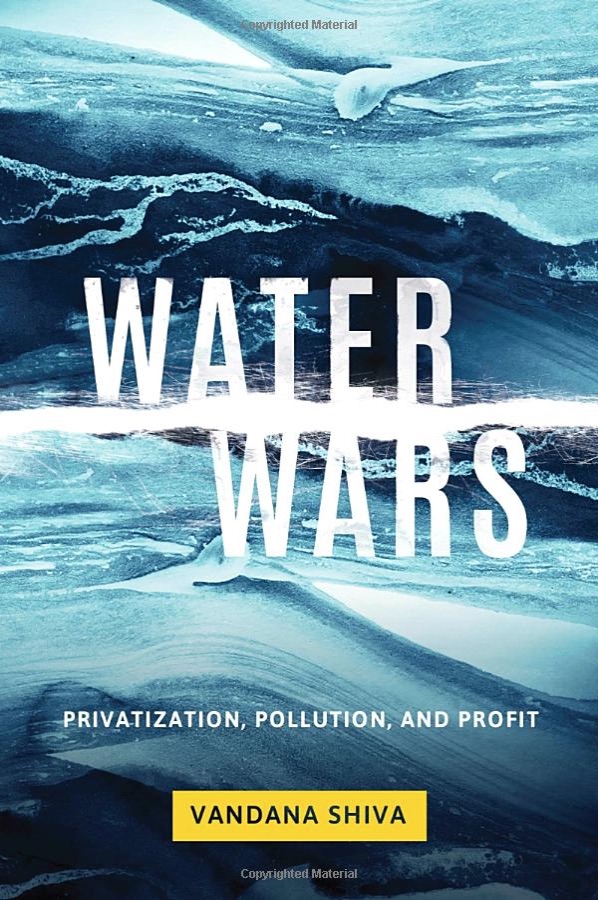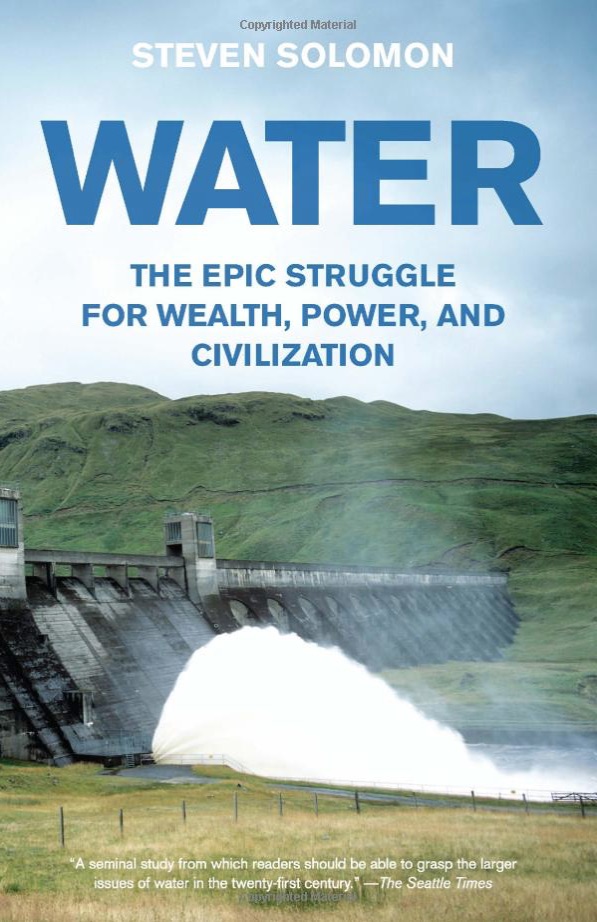Water is a scarce resource, and we can’t live without it. Groundwater is simultaneously being depleted and contaminated. As a result, wars are being fought over what remains of the planet’s available water sources. Despite these circumstances, we waste millions of gallons of water each year doing one simple thing we could do differently.
Every day we all turn on the faucet and wait for hot water — for a warm shower, hot water to wash dishes, or warm water to wash our hands. Depending on the household, the amount of water that runs down the drain could be several gallons or more per day. That’s billions of gallons per year for all the households in America.
Capturing cold or warm water while we wait for the hot water would prevent that unused fresh water from going down the drain. This can be easily done with old gallon jugs of water. Numerous possible recapturing systems with pumps or gravity fed water containers could make use of that unused fresh water for washing hands, brushing teeth, and other needs.
On demand hot water heaters save water by reducing the wait time for hot water, yet they are expensive and aren’t easily installed in all locations such as apartments where tenants may not be able to make significant modifications to their rental property.
Gravity Fed Water Containers
The photo below shows an example of gravity fed water supplies.

Further Reading
Below are some articles for further reading.
- “Fracking Can Contaminate Drinking Water,” Scientific American, Gayathri Vaidyanathan, 4 April 2016. Excerpt: “It took nearly a decade, but former EPA scientist Dominic DiGiulio has proved that fracking has polluted groundwater in Wyoming… Former EPA scientist Dominic DiGiulio … published a comprehensive, peer-reviewed study last week in Environmental Science and Technology that suggests that people’s water wells in Pavillion were contaminated with fracking wastes that are typically stored in unlined pits dug into the ground. The study also suggests that the entire groundwater resource in the Wind River Basin is contaminated with chemicals linked to hydraulic fracturing, or fracking.”
- “If You Think the Water Crisis Can’t Get Worse, Wait Until the Aquifers Are Drained,” National Geographic, Dennis Dimick, 21 August 2014. Excerpt: “We’re pumping irreplaceable groundwater to counter the drought. When it’s gone, the real crisis begins. In ten years, the Colorado River Basin has lost the equivalent of two Lake Meads, the largest reservoir in the U.S. … Aquifers provide us freshwater that makes up for surface water lost from drought-depleted lakes, rivers, and reservoirs. We are drawing down these hidden, mostly nonrenewable groundwater supplies at unsustainable rates in the western United States and in several dry regions globally, threatening our future. We are at our best when we can see a threat or challenge ahead. If flood waters are rising, an enemy is rushing at us, or a highway exit appears just ahead of a traffic jam, we see the looming crisis and respond.”
Books
Water Wars: Privatization, Pollution, and Profit
“Acclaimed author and award-winning scientist and activist Vandana Shiva lucidly details the severity of the global water shortage, calling the water crisis “the most pervasive, most severe, and most invisible dimension of the ecological devastation of the earth.” She sheds light on the activists who are fighting corporate maneuvers to convert the life-sustaining resource of water into more gold for the elites and uses her knowledge of science and society to outline the emergence of corporate culture and the historical erosion of communal water rights. Using the international water trade and industrial activities such as damming, mining, and aquafarming as her lens, Shiva exposes the destruction of the earth and the disenfranchisement of the world’s poor as they are stripped of rights to a precious common good. Revealing how many of the most important conflicts of our time, most often camouflaged as ethnic wars or religious wars, are in fact conflicts over scarce but vital natural resources, she calls for a movement to preserve water access for all and offers a blueprint for global resistance based on examples of successful campaigns. Featuring a new introduction by the author, this edition of Water Wars celebrates the spiritual and traditional role water has played in communities throughout history and warns that water privatization threatens cultures and livelihoods worldwide.”
Water: The Epic Struggle for Wealth, Power, and Civilization
“This sprawling text reconstructs the history of civilization in order to illuminate the importance of water in human development from the first civilizations of the Fertile Crescent and the Indus River Valley to the present. Solomon (The Confidence Game) advances a persuasive argument: the prosperity of nations and empires has depended on their access to water and their ability to harness water resources. The story he tells is familiar, but his emphasis on water is unique: he shows how the Nile’s flood patterns determined political unity and dynastic collapses in Egypt. He suggests that the construction of China’s Grand Canal made possible a sixth-century reunification that eluded the Roman Empire. Finally, he attributes America’s rise to superpower status to such 20th-century water innovations as the Panama Canal and Hoover Dam. Solomon surveys the current state of the world’s water resources by region, making a compelling case that the U.S. and other leading democracies have untapped strategic advantages that will only become more significant as water becomes scarcer.”
Video
The video below describes how wars are being fought over water.
“It can be described as the most important resource on Earth, but with supply dwindling on some parts of the planet it’s also providing inspiration for conflict in the 21st century.”


